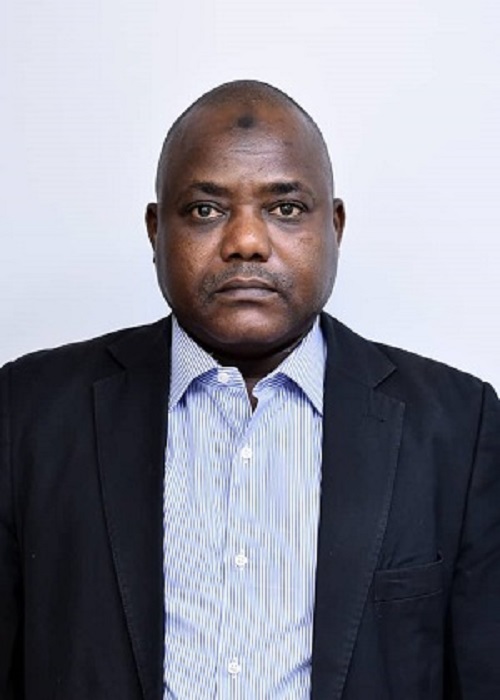Engr. Sarki Auwalu, Director, DPR
…Generated N2trn for Nigeria in 2020
…FG committed to deregulation, says Sylva
The Department of Petroleum Resources (DPR) has identified six key areas of operational excellence for Nigeria’s oil and gas industry, advising stakeholders to build a culture in these specific areas.
Engr. Sarki Auwalu, Director, DPR, made this known while delivering a keynote address at the 2021 Oloibiri Lecture Series and Energy Forum (OLEF) organised by the Society of Petroleum Engineers (SPE) Nigeria Council.
Auwalu listed the key areas as health, safety and environment; cost performance and return on capital for all stakeholders across all assets, as well as use of appropriate and consistent standards across the entire business.
The DPR Director disclosed that the department generated N2 trillion for the country in 2020, despite the downturn in the oil and gas industry caused by the COVID-19 pandemic.
Auwalu who noted that the business environment in the industry remained fragile, charged operators to eliminate inefficiencies by reducing cost, building partnerships and entrenching collaboration in the industry.
He said the department currently runs a progressive regulatory regime that incentives compliance and reward performance rather than place emphasis on infractions and penalties. “Like I usually say to my colleagues, we want more royalties, not penalties; we want to see compliance kudos rather than non-compliance notices; we want to catch our duty holders doing something right not something wrong.
“In fact, our aim is to ensure that regulations and industry guidelines are issued and applied in a manner that reflects good oil field practise, internationally acceptable standards and are responsive to challenging and changing industry dynamics and global realities”, he added.
Engr. Auwalu stated that DPR has consistently exceeded the government’s revenue target by embracing systems and processes that ensure transparency and accountability in oil and gas revenue generation, computation, collection and reconciliation, as well as legacy debts recovery. “Last year alone”, he stated, “We have generated over N2 trillion for this country and we intend to exceed this value for this year”.
He said it also included continuous improvement culture that strives to exceed set targets; human capital development and improved reputation based on efficient operations and sustainable business practices.
“DPR will regularly review the industry performance on operational excellence based on the above measures and provide appropriate feedback to respective companies and the industry in general,” the director said.
According to him, the DPR will only use regulations as tools to allow the industry to develop and operate their assets safely, reliably, sustainably and cost effectively.
He noted that the theme of this year’s event, ‘Operational Excellence and Portfolio Optimisation, Way Forward for the Oil & Gas Industry Post COVID- 19’ was very apt in view of current global realities.
Auwalu said: “It would be recalled that in the wake of the ‘Triple force’ of COVID-19, Oil Price Crash and OPEC+ cuts that impacted the global petroleum industry, the department, under the leadership of the Honourable Minister of State, rolled out four strategic focus for industry repositioning and business optimisation.
“These measures were to ensure that the Nigerian Oil and Gas Industry survive and thrive in the face of severe economic disruptions and daunting challenges.
“The Department has continued to monitor industry metrics and we are optimistic that the Industry is emerging stronger with key indicators pointing northwards.
“A note of caution is in order though, like the saying goes: ‘The storm may be over; but storms come and go. Storms are part of life’.
“Accordingly, we need to keep our eyes on the ball and make concerted efforts to wade through the fragile business environment by eliminating inefficiencies, reducing cost, building partnerships, and entrenching collaboration in the industry.”
He said the DPR under his leadership was a business enabler and opportunity provider and would continue to incentivise operational excellence rather than focusing on sanctions.
“To achieve improved industry performance and businesses optimisation, DPR has streamlined its processes and leverage technology to enhance value, reduce industry cost of operations and support business continuity.
“Today, most of our processes are digitised through the DPR suite of business automation solutions for data gathering, reporting, issuance of Licences, Permits and Approvals, inspections, reviews and audits and so on,” Auwalu added.
The DPR boss also urged stakeholders in the industry to leverage on the recently inaugurated National Oil and Gas Excellence Centre (NOGEC) to drive Safety, Value and Cost efficiency in the industry.
In his state of the industry address, the Minister of State for Petroleum Resources, Chief Timipre Sylva reiterated the Federal Government commitment to fully deregulate the downstream sector of the petroleum industry with a market-driven price of premium motor spirit, petrol. Chief Sylva whose address was presented by his Chief of Staff, Engr. Moses Olamide urged the SPE members to brace up to play a crucial role in the industry with the expected passage of the Petroleum Industry Bill, PIB, this year.
Also speaking, the Group Managing Director of the Nigerian National Petroleum Corporation, NNPC, Mallam Mele Kyari said the disruption caused by the Covid-19 pandemic has led the oil and gas industry into cost-cutting and survival strategies. Represented by the Chief Operating Officer, Upstream, Engr. Adokiye Tombomieye, Mallam Kyari observed that “the industry was forced to curtail spending as it grappled with the challenges of sustaining current production levels, drilling operations, funding future growth and maintaining positive cash flow. “There have also been declining investments in oil and gas explorations which will further affect the growth in the market”, he added.
He pointed out that in Nigeria, “the focus has been on increasing oil production, growing domestic gas utilization and maturing hydrocarbon reserves to generate revenue for the nation. “We are also determined to increase downstream market share to guarantee energy security, investment in petrochemicals and fertilizer plants, promote the use of CNG and LPG as auto-fuels and increase domestic refining capacity”.


Comment here